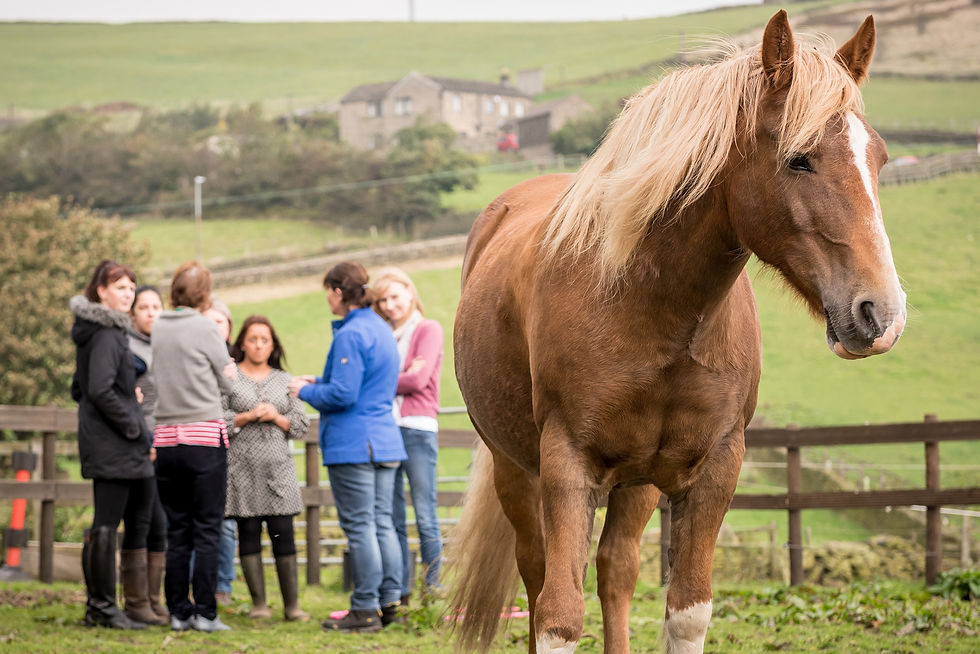Is Your Horse Really a Bully?
- Heidi Dawson

- Jan 22, 2025
- 2 min read
WHAT THEY'RE TRYING TO TELL YOU - IN THE ONLY WAY THEY KNOW HOW

I was chatting with a friend recently about the challenging relationship she has with one of her horses.
My friend is a very experienced horsewoman and riding instructor, so I was surprised to hear of her struggles. But then, I reflected on the old adage about cobbler's shoes, as well as the saying "physician heal thyself."
I wonder whether, sometimes, we horse-folks are just as guilty of not tending to our own "stuff" as the plumber whose central heating leaks. Or is it a question of not feeling able to ask for help and support, because we should know how to address the problem ourselves? Maybe we feel vulnerable in admitting that we might not have all the answers?
Whatever the underlying reason, one thing I do know is that horse professionals are human too! I know; hot news, right?
So, back to my original question......
IS YOUR HORSE REALLY A BULLY?
Horses are often misunderstood, especially when their behavior is labeled with negative terms such as "bullying." But is it really bullying, or is your horse trying to communicate something deeper?
Understanding Equine Behavior

Horses are highly social, emotionally intelligent animals that rely on clear communication within their herd. What might seem like pushiness or defiance to us is often their way of setting boundaries, seeking connection, or responding to unclear signals.
If your horse is consistently acting in a way that feels dominant or challenging, it's worth taking a step back and asking:
Am I being clear and consistent in my communication?
Is my horse feeling anxious, uncertain, or unbalanced?
Does my horse trust me as a leader?
The Importance of Emotional Intelligence
Just like us, horses thrive in environments where they feel safe and understood. Developing emotional intelligence in our interactions with them means recognizing their behavior as feedback rather than defiance.
For example, a horse that crowds your space might be looking for reassurance, not trying to take over. A horse that refuses to move forward might be unsure rather than stubborn.
Shifting Your Perspective
Instead of labeling your horse as a bully, consider what their actions might be telling you:
Pushiness could mean a lack of boundaries or confidence.
Resistance might indicate confusion or discomfort.
Avoidance could signal fear or past experiences.
Building a Stronger Partnership
Approaching your horse with curiosity rather than frustration can transform your relationship.

Consider what might happen if you focused on:
Clear, consistent communication.
Developing mutual trust and respect.
Recognizing when your horse needs support versus correction.
By shifting your mindset and tuning into your horse's emotional needs, you'll create a more harmonious and rewarding partnership.
Want to learn more about understanding equine behavior and deepening your connection? Let's start a conversation.





Comments